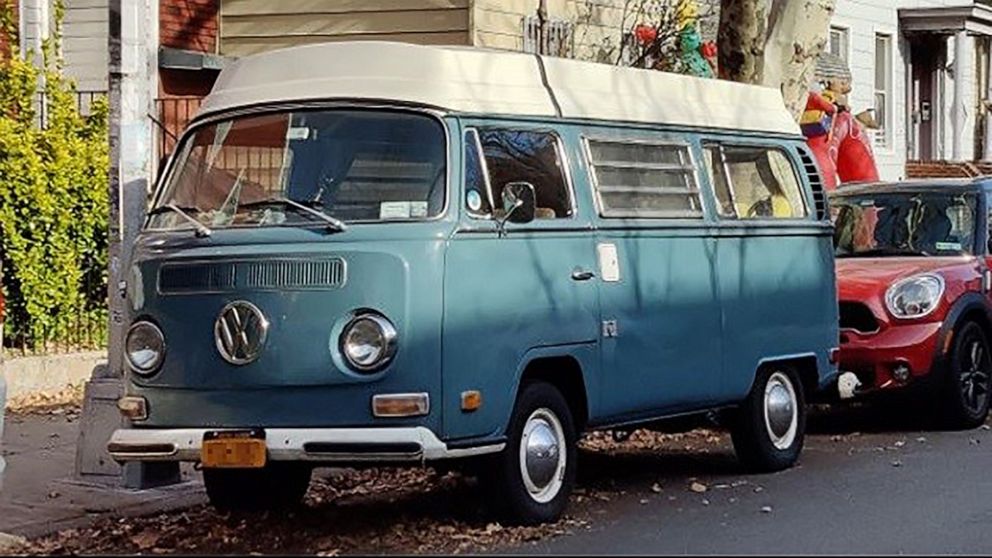


Volkswagen has pulled the wraps off its ID Buzz: a van the company is billing as a spiritual successor to its iconic Microbus. But while the original "hippie bus" was powered by a tiny four-cylinder engine behind the rear axle, the new one runs entirely on electric power.
Chad Kirchner, editor-in-chief EV Pulse, says despite the retro looks and EV powertrain, the Buzz's main focus is practicality.
MORE: 'Swan song': How automakers are saying goodbye to internal combustion engines"It's designed to be kind of a mainstream people-hauler first. Just with cues to play into that retro appeal of the Microbus," Kirchner said.
Volkswagen introduced the first Microbus, the T1, in 1950. Over the next few decades, the vehicle became synonymous with the "counterculture" movement. Microbuses were often given bright, psychedelic paint jobs, replete with flowers and peace symbols. Type 2s are featured prominently on album covers from Bob Dylan and The Beach Boys, and can easily be spotted in footage from Woodstock. Early Microbuses shared an engine with the VW Beetle of the era. The new Buzz, similarly, shares a powertrain with another VW stablemate.
The Buzz sits on VW's "MEB" electric architecture, which also underpins the brand's electric crossover, the ID4. The company hasn't yet released specifications for the American-market Buzz, but did reveal the European model will come with a 201-horsepower electric motor powering the rear wheels. As for electric range, Kirchner says he's expecting it to be close to the ID4's 268-mile figure. The Buzz is about five inches longer than the ID4, and according to VW, the European version has 138 cubic feet of cargo area.
"If you want a little more space you're going to want the ID Buzz," said Kirchner.
Numbers aside, Kirchner says car buyers' fond memories of classic VW buses could prove to be the Buzz's main selling point.
"There is definitely a large group of people out there who are nostalgic for the old Microbus," he added.
Todd Olson is the co-founder of Buses By The Beach, a car club for Microbus enthusiasts. He says he first became interested in buses after attending a Grateful Dead concert in 1992.
"That's when it all made sense," he told ABC Audio. "I saw all these Volkswagen vans, where people can live in them… so that started the bug."
Olson says he's now owned, restored, and sold over fifty different Volkswagen buses, and says he's discovered a vibrant enthusiast community in the process.
"Buyers of Volkswagen [buses], they're counterculture people, they're a little different," he says. "They dance to a different beat."
MORE: Biden administration accelerates plans for a national EV charging networkAs for whether the new Buzz can dance to that rhythm, Olson says his initial impressions are positive.
"I think it's a very cool concept," said Olsen. "I'm excited to see the vehicle."
But he has concerns that the limited range of an electric vehicle could put a damper on its appeal.
"The owners of those vans -- they want to roll, they want to travel and follow the Grateful Dead ... follow Phish," said Olson. "That pure-EV vehicle unfortunately just doesn't have the range yet."
The Buzz is set to go on sale in Europe later this year. It hits US dealerships in 2024. Olson says despite his reservations, he still wants to take it for a test drive.
"When the new one hits the showroom floors, we're definitely going to go give it a try," he said.
Hear ABC's Michelle Franzen report on VW's new electric bus: